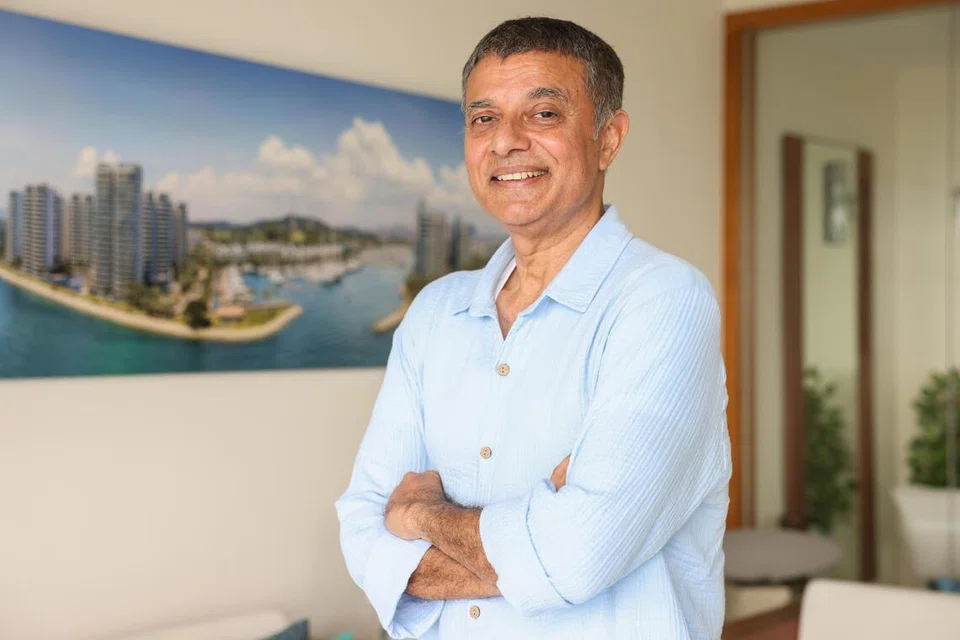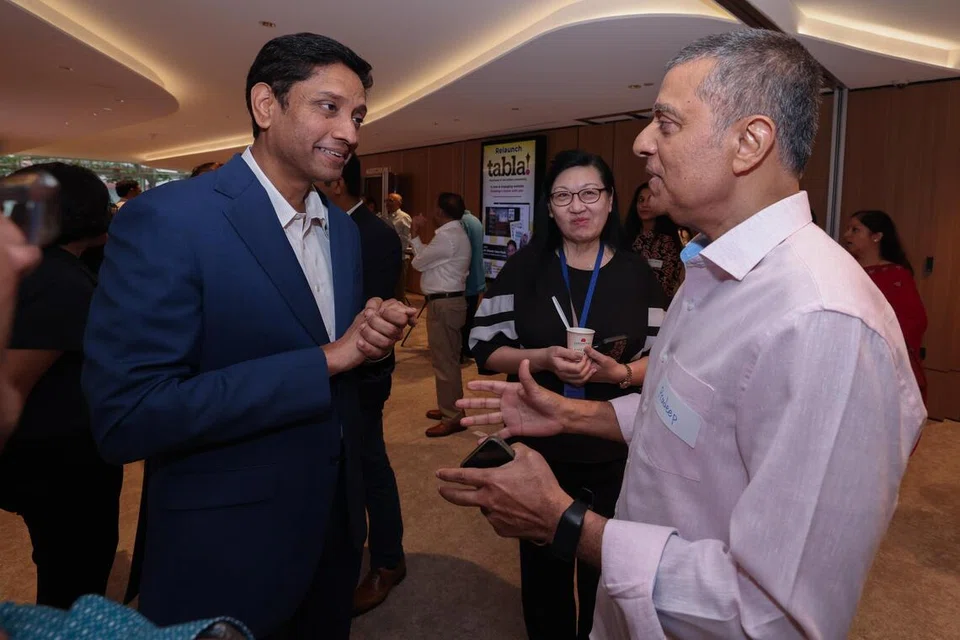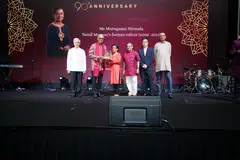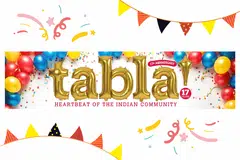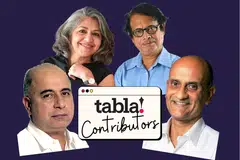Seventeen years after its first issue, tabla! is entering a new phase, one that extends its print legacy while positioning the paper squarely in the digital news landscape. Its newly launched website signals a renewed commitment to its original purpose, which was to serve as a coherent voice for Singapore’s Indian community, now with a wider reach.
The genesis of tabla! stretches back to S Chandra Das’ tenure as chairman of Tamil Murasu. His interactions with non-Tamil Indian groups revealed a gap in the market. These communities had cultural, social, and professional activities, but lacked a common platform to publicise them. English was, for him, the only medium that could bridge the range of Indian sub-ethnic groups in Singapore.
“I wanted to reach the non-Tamil speaking community and give them a medium, and I think we fairly achieved that,” Mr Chandra Das said. He added that at the time he had “tremendous support from President Nathan.”
Within SPH, the idea gained traction quickly, as Indians in Singapore were increasingly bilingual. Patrick Daniel, editor-in-chief of SPH’s English, Malay and Tamil newspapers from 2007 to 2016, recalled some of the strategic conversations at that time.
“Of all the vernacular communities, the Indian community is the most bilingual. So an English paper would be the best way to reach non-Tamil speaking groups,” he said.
An English-language weekly aimed at Indians broadly – including Sikhs, Gujaratis, Punjabis, Malayalis, Malay-speaking Indians, and long-settled families – was not only viable but also overdue, according to him. “tabla! is meant for all Indian communities here. I think it’s as valid today as it was then.”
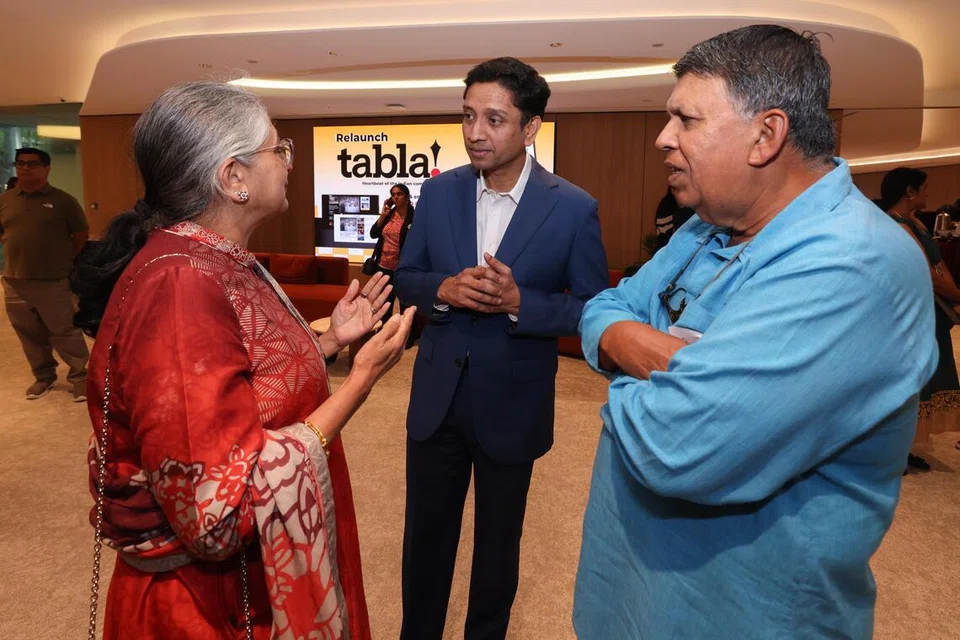
Building credibility from scratch
Mr Pradeep Paul, one of the founding editors of tabla!, emphasised the broader vision the team had in mind. “We wanted to embrace people who were open to Indian culture, even if they weren’t from the Indian community,” he said.
The launch period was demanding. For Mr Pradeep, the excitement was matched by the pressure. “I went to work at 3 in the morning. That was the kind of excitement, the commitment that all of us had.” However, before anyone had seen the paper, assumptions and misconceptions were already circulating. Advertisers were wary.
Thankfully, the painstaking early work paid off. As circulation increased, so did community engagement. Mr Chandra Das recalled how demand outpaced supply – “people asked for more copies to be circulated”, he noted.
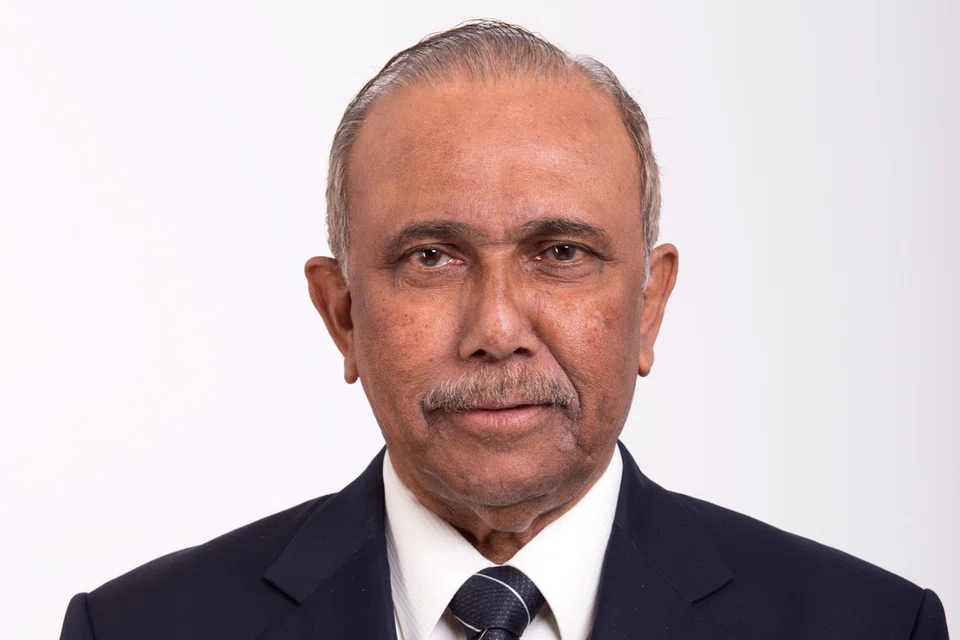
From the outset, the founders knew that longevity depended on both editorial quality and distribution. The team worked to craft a voice that represented the full spectrum of Indian life in Singapore – including professionals, families, students, business owners, and migrant workers. Mr Pradeep highlighted one formative piece, “The Other NRI” written by Mr Paddy Rangappa, a regular contributor to tabla! up till now. The story profiled Indian migrant workers who helped build Singapore’s infrastructure, challenging common assumptions about the Indian diaspora. “I felt they needed to be recognised as part of the community… it wasn’t just about wealthy NRIs,” he said.
This willingness to widen the definition of “Indian community” became part of tabla!’s character.
Looking to the future
Today, the media landscape in which tabla! operates, has changed dramatically. Print remains core to its identity, but audience behaviour has shifted.
“Print readership is dwindling,” said current editor Venga Subramaniam. “Many are moving towards digital, and social media plays a bigger role.” Even so, he argued that print offers a layer of editorial discipline and credibility that the digital landscape lacks. “Anyone with a phone can produce digital content. Not everyone can run a newspaper,” Mr Venga said.
tabla!’s revamped website is its most significant digital investment to date. What was once a basic e-paper portal has been replaced by a platform with structured news categories, multimedia elements and timely updates.
The shift has already expanded the paper’s reach well beyond Singapore. “Since we launched the new website, tabla! has been edging towards 100,000 page views a month,” noted Mr Venga, who is also Tamil Murasu’s audience and growth editor.
The new tabla! audience spans not only Singapore but readers across the Indian diaspora – from Malaysia to the US. More features, including a quick news feed, videos, and integrated social feeds, are slated to roll out in the coming months.
tabla!’s supervising editor, Raja Segar, views this digital transformation as a necessary recalibration. Singapore’s Indian community today is more diverse linguistically and culturally, more educated, and more comfortable in English. “tabla! cannot be a paper just for non-Tamil-speaking Indians,” he said. Its English platform enables non-Indians, including Malays, Chinese, and others, to gain an understanding of Indian life in Singapore.
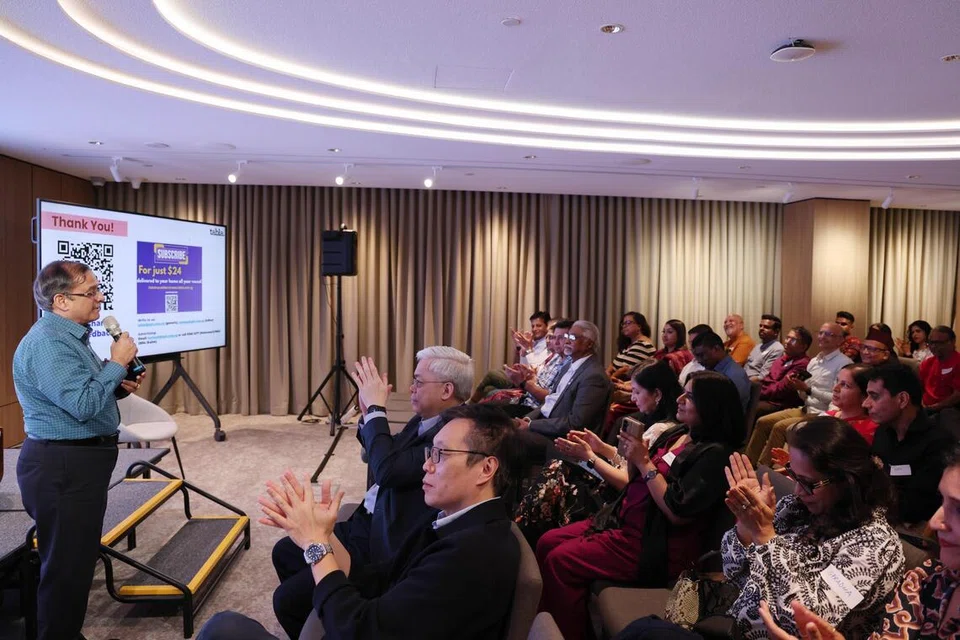
Digitalisation also removes geographic boundaries. “Being on the digital platform means there is no national boundary – it can go regional, it can go global,” Mr Raja added. He sees tabla! evolving into an integrative platform, linking long-established families with newer migrants and connecting sub-ethnic Indian groups that rarely interact. “It can become a model for how the Indian diaspora lives together and discusses together.”
To meet these ambitions, the team is widening its coverage to include dedicated sections for food, youth, education, culture, emerging professionals, and stories from Indian communities worldwide. The goal is to serve both local readers and the global diaspora that increasingly consumes Singapore-based Indian content. tabla! will increase both the volume and types of content,” Mr Venga noted, signalling an intent to grow rather than simply migrate online.
For the people who built tabla!, its digital shift is both a natural progression and a reaffirmation of the mission that shaped the paper. “I’m proud that we created something for the community and kept it going,” said Mr Das. Mr Patrick summarised tabla!’s growth in industry terms – reach, quality and ambition. “Break a few news stories, do international interviews, become known as a paper out of Singapore focusing on the Indian community. It’s very achievable.”
And for Mr Pradeep, whose first months were marked by 3am starts and round-the-clock work, the sentiment is straightforward: “My wish for tabla! is many, many fantastic years ahead. I am very proud of it.” Seventeen years after its first issue, tabla! steps into a landscape that is larger, faster and more interconnected than the one it was born into.
